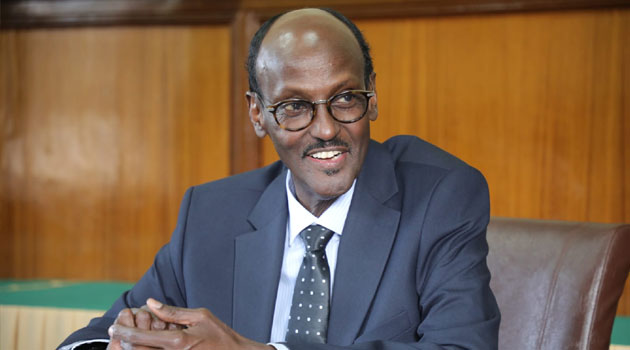
Judiciary elections team to spend Sh903mn on 2027 poll disputes » Capital News
NAIROBI, Kenya, Jul 22 — The Judiciary has projected a Sh903.8 million budget for handling election-related disputes in the 2027 General Election cycle in a new operational plan unveiled Monday.
The allocation, covering a 4-year period, will support judicial training, infrastructure, stakeholder engagement, and implementation of reforms aimed at enhancing Electoral Dispute Resolution (EDR).
The Judiciary Committee on Elections (JCE), now a designated spending unit, will oversee the rollout of the plan through 2029.
Chief Justice Martha Koome, who launched the plan in Nairobi, said the budget underscores the Judiciary’s commitment to upholding electoral justice and public confidence in the courts.
“This plan sets out how we intend to prepare, act, and evaluate our performance during the 2027 electoral cycle,” said Supreme Court Judge Mohammed Ibrahim, the JCE Chairperson.
The JCE Operational Plan 2025–2028 outlines five thematic focus areas: legal reform, capacity building, public awareness, institutional governance, and resource mobilisation.
Among the planned interventions are the upgrading of e-filing systems, deployment of legal researchers and ICT staff, and enhanced security and infrastructure for election courts.
Lessons from past polls
The Judiciary unveiled the plan even as JCE data showed a decline in electoral disputes from previous cycles.
The Committee documented 540 pre-election and 389 post-election cases in 2017, compared to 314 and 222 respectively in 2022—a trend the Judiciary attributes to growing confidence in the EDR framework and legal reforms.
Despite these gains, the plan highlights persistent challenges—including underfunding, infrastructure deficits, and public misinformation—which the Judiciary hopes to mitigate through early planning and strategic partnerships with Parliament, the Independent Electoral and Boundaries Commission (IEBC), and civil society.
Investing in institutional memory
To enhance continuity, the Judiciary plans to strengthen the JCE Secretariat by deploying permanent and ad hoc staff and improving knowledge management systems.
A key goal is to preserve lessons from past electoral cycles to inform future decision-making.
The committee plans periodic reporting on a weekly, monthly, and annual basis, with mid-term and final evaluations set to assess performance leading into and following the 2027 elections.
Koome reaffirmed the Judiciary’s constitutional obligation to resolve electoral disputes fairly and efficiently saying her leadership is committed to enhancing confidence
“Judicial preparedness is not an option—it’s a constitutional necessity.”